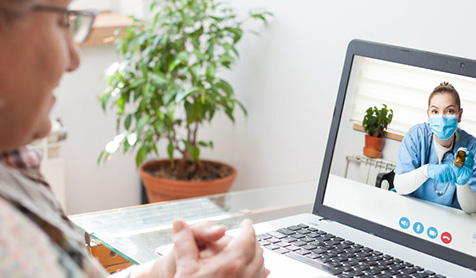

Blog

General Practice in 2020 a year like no other
Tuesday January 12, 2021
At this time of year, we often reflect on the 12 months that have just passed – the issues, the achievements, the things still left to do. Of course, 2020 has been dominated by COVID-19.
The pandemic provided an enormous challenge, but also showcased the strength of General Practice, and the importance of a good primary care system. The flip side to this is, of course, the wisdom of investing in it.
COVID-19 may have dominated our year both personally and professionally, but your AMA has been adept in using the circumstances to gain maximum benefit for General Practice.
The first and most obvious thing was the rapid introduction of telehealth. The AMA and I have been advocating this for many years, but various barriers were always thrown up by the Department of Health, and progress was slow. Come COVID, and some intense lobbying utilising our close relationship with Federal Health Minister Greg Hunt saw this introduced very rapidly. We were aided in our endeavour by the Royal Australian College of General Practitioners, with the profession presenting a unified front.
However, the Government was insistent that some telehealth services be bulk billed. We were able to restrict this to disadvantaged “high-risk” groups, the latter definition of course presenting many challenges. The AMA fought unsuccessfully to remove this criterion, but as part of the negotiation we were able to get the “double bulk bill incentive” whilst it was in place. We were ultimately able to remove the forced bulk billing requirements, which represented a potentially disastrous precedent if accepted as general policy rather than a time-limited emergency measure.
What would not have been so obvious to most though, was the work invested to use the introduction of these items to change the viewpoint of the Government and its 10-year Planning Committee on patient registration.
The AMA is supportive of voluntary patient registration, but not if it is used to impose UK-style capitation payments. This was exactly the initial plan. You would have received a fixed payment (probably just over $100 per year) for each enrolled patient and then be expected to do all required telehealth, phone calls, emails, repeat prescriptions, referrals etc. for no additional fee unless the patient was seen in a face-to-face consult.
We have now changed this so that telehealth is available as an MBS item, and this will continue long term. We are still fighting to retain the phone items at their current rebate. Devaluing these will disadvantage the most vulnerable, who are less likely to have access to video conferencing.
Ultimately, patient registration is likely to occur, but rather than unlocking capitation payments, it will be the key unlocking access to telehealth items for the regular GP practice, and I suspect care planning and potentially other items in the future. We are building a better and more GP-friendly health system for the future.
This has been achieved by very careful and targeted strategies, adapting to the rapidly changing COVID environment and utilising it to leverage the best possible outcomes for General Practice.
In addition, we have been successful in retaining the $448 million that was allocated as seed funding for the registration program. We have negotiated that this will be retained to boost GP funding. Exactly how this will be utilised is still under discussion, but rest assured, we are in there to get the best deal possible for you.
We have also not forgotten all our routine work, such as working with the Royal Commission into Aged Care, reviewing many policies and documents, improving them and in many cases preventing very troublesome policies from seeing the light of day.
So although in one sense it has been a difficult and challenging year, in another, your AMA has seized the opportunity of being in the limelight and working closely with government to improve the environment for you, as well as obtain some additional funding.
Many challenges remain, such as the future of GP training, but rest assured that your membership fees are being put to good use and to your benefit.

